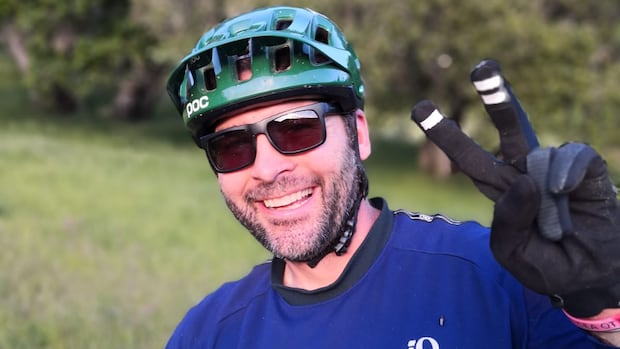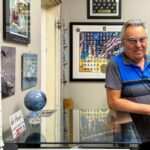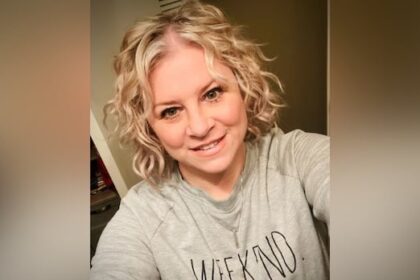British Columbia·Q&AAfter eight years of owning and operating a specialized bike parts company in Kamloops, B.C., Dustin Adams was ready for a change. Dustin Adams sells Kamloops-based We Are One Composites to Industry NineCBC News · Posted: Nov 22, 2025 9:00 AM EST | Last Updated: 30 minutes agoListen to this articleEstimated 5 minutesThe audio version of this article is generated by text-to-speech, a technology based on artificial intelligence.Dustin Adams sold his Kamloops company to an international bike parts manufacturer this year — but he says the company’s relationship to Kamloops will remain strong. (Submitted by Dustin Adams)After eight years of owning and operating a specialized bike parts company in Kamloops, B.C., Dustin Adams was ready for a change. “I think the timing was right,” he told CBC’s Daybreak Kamloops. He said he’d been wanting to grow into the American market for awhile — even before Canada-U.S. tensions mounted amid a tariff war — when the opportunity arose. Earlier this year, Adams sold his company, We Are One Composites, to Industry Nine, an international bike parts manufacturing company based in Asheville, N.C., becoming its CEO.CBC’s Shelley Joyce spoke with Adams about the decision to sell, his new role and what it means for local employees. This interview has been edited for length and clarity. How did you get you started with your business, We Are One Composites? That’s a long story. The short and dirty version was I wanted to get back into the bike business after racing bikes for a number of years and felt like manufacturing bicycle parts was a good way to get into it. I had gained a lot of experience from owning a shop and learning machining and figured this would be a good venture to dig into, something that could be sizeable and a big challenge and I could focus all of my attention on and try to grow something unique and new for everybody within the area and in Canada as well. You built rims for racers. Carbon fibre bike rims. What kinds of people buy a carbon fibre bike rim?Generally, the craziest of them all. High-end mountain bike enthusiasts and mountain bikers was our target market. People who had maybe the odd screw loose and willing to risk their life here and there, that was kind of who we focused on selling product to. Now you’ve sold your business to a U.S. company, right?Yeah, Industry Nine. It was one of our largest customers actually. We were trying to align with a company in the U.S. or even grow into the U.S. market with manufacturing. The expenses and the cost in front of us were always just a little bit too insurmountable.Dustin Adams poses with Industry Nine founder Clint Spiegel. (Dustin Adams)Clint, the owner and founder of Industry Nine, was a great guy, and he came to the table with a reasonable offer. And I think it gave the company a better position over the long run and more opportunity to be a bigger company in the future. I really wanted to take care of the people, the employees as well. Will your product remain the same?Absolutely. Yeah, I mean the role was to keep everything in Kamloops and keep manufacturing in both locations as the U.S. company now has a strategic advantage having a footprint in Canada and vice versa. So absolutely we plan on staying there and still being a big part of the Kamloops community. What about your employees, will you just keep the same people working there because they’re sort of loyal to the product? Absolutely. Everybody that was there when we did the acquisition is still there. And we plan on increasing our staffing and doing more stuff in the footprint that we currently have. We’re talking to you in Asheville this morning, but you’re working from Kamloops, right? I’ll be back and forth. So it’s a hybrid role. I’ll be inbetween Asheville, Kamloops and Spain. We have a facility over there. You sold to a U.S. company. Will there be challenges around tariffs? Will they factor into what you do?This actually helps everybody, helps the U.S. side and the Canadian side. We have the ability now to, instead of purchasing and selling products to our company, we are now doing inter-company transfers and we have a CUSMA-compliant product now. And believe it or not, our entire finished product is made in North America. We manufacture the hubs and the spokes down here [the U.S.] and the rims up there [Canada]. We avoid tariffs, actually.I’ve never been a big fan of mixing politics and business, but, you know, there’s some challenges, let’s not lie. But the company was poised to do so much good. It’s a 20-year-old company down here and they’ve been, I wouldn’t say entrenched, but they’ve been steady and they’ve overlooked a lot of great potential. I think for me, I assessed and figured this would be a great opportunity to grow and show them all of the power that they could yield while utilizing what we do in Kamloops. So the opportunity is so good to grow and and get bigger now that I’m in control. I’m super happy.It’s not good manners to ask somebody about their bank account, but I’m curious to know how much you could sell this company for to a big U.S. company?Uh, a lot less than you think. I’m not able to retire. That’s why I’m still working. We had shareholders and I know they’re going to do well and everybody that was involved ended up in a positive position.With files from Daybreak Kamloops
How this Kamloops, B.C., entrepreneur became the CEO of an international bike parts company











